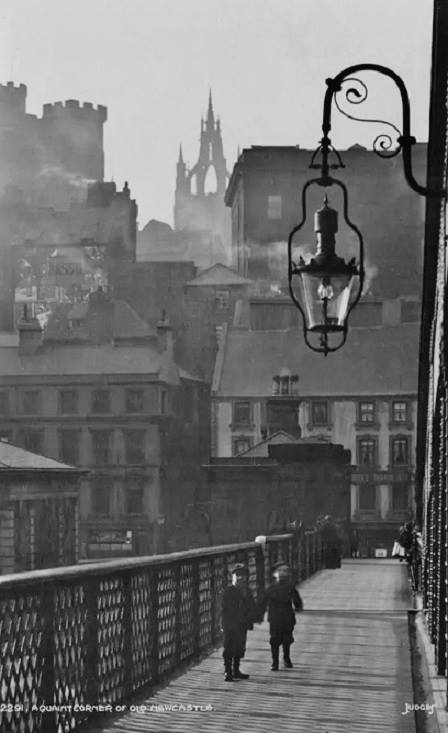(in memory of Thomas Bewick, wood engraver)
The starlings en masse
roost here now.
They blend with the dark trees
in the twilight
by Bewick's shadowy workshop.
Under the Cathedral spire,
they shriek and gossip
in the chill;
chit-chat of more weather.
I think that Thomas
you could speak to birds,
knew them as you drew their words
in woodblocks.
You coaxed them from their very eggs,
uncaged them -
let them sing on the page.
THE BROTHERLY SOCIETY
London
Depressed you
with its ‘blackguard places’,
its streetwalking ways.
They called you ‘Scotchman’
and you itched for home,
reading the Geordie papers
at the Hole-in-the-Wall.
And your heart trilled like a blackbird’s
when you rejoined your Whig mates,
putting a world to rights
in the Lion Lounge.
You were back
herding sheep in your roots,
smiling down to your boots
in that Brotherly Society
of Northumbrian cronies:
the wild fields
of Tyne.
RETURN TO CHERRYBURN
Drawing
clear of the city,
you carved your name
in dogs barks
and birds cries.
Your infant eyes
kept seeing
the devils in bushes
and the gods
in thrushes.
You loved
to scratch a living.
Avoiding the faces
of strange places,
You dreamed of always
Being a boy,
A bird or a fish,
Awash in the light
Of a dark wood:
A cherry burn.
Footprints home
To remember.
‘TALE PIECES’
You spent your life
perfecting it,
crafty as a fox
forging a frantic path
across the fields.
To the sound of the Pipes,
you worked your way
to a quiet glade,
died contentedly
devising
‘tale-pieces’:
a tuneful ending
to a drawn-in-day.
WALK ON, TOM BEWICK
Stride Circus Lane
and chip your signature
on the pavement of scrapes and kisses.
pass the Forth
and skirt
its pleasure gardens;
throw your darts in the archery field.
skim the bowling green
and walk on water,
doff your hat to Mrs Waldie;
cut along
old scars of lanes
to the bloody gush of Westgate street;
whistle with birds
in a vicar’s garden,
let warm thoughts fly in Tyneside sun
to bless this Geordie day.
And greet
the morning hours,
Aunt Blackett and Gilbert Gray,
sing to free the world,
the Black Boy;
harmonise your mind
in a churchyard of melancholy.
Dance over the Lort Burn,
in the sun in your eyes,
flooding your workshop
with a light fantastic.
Your shoulders so proud
rub with the building girls
and lady barbers
along Sandhill;
the boats of your dreams
bridge the aching Tyne,
ships groaning
in the tender daylight,
longing for the healing moon;
a keelman’s fantasies
of quayside flesh
and the seething sea.
You trip along
searching for electricity and magnetism
in the inns,
winging it
with the bird catchers and canary breeders,
the dirty colliers and the harping whalers.
Walk on Tom,
execute
a portrait
of a hanging man;
let your strong heart
swell with the complex passion
of common folk.


















